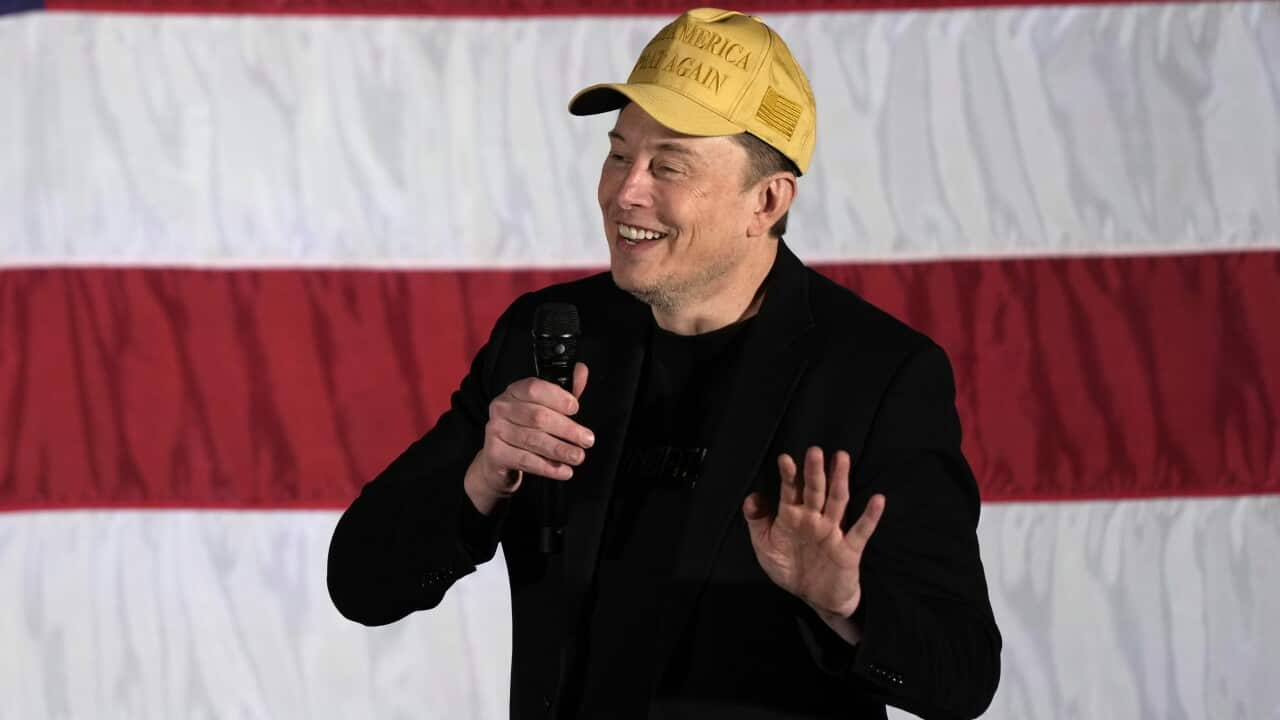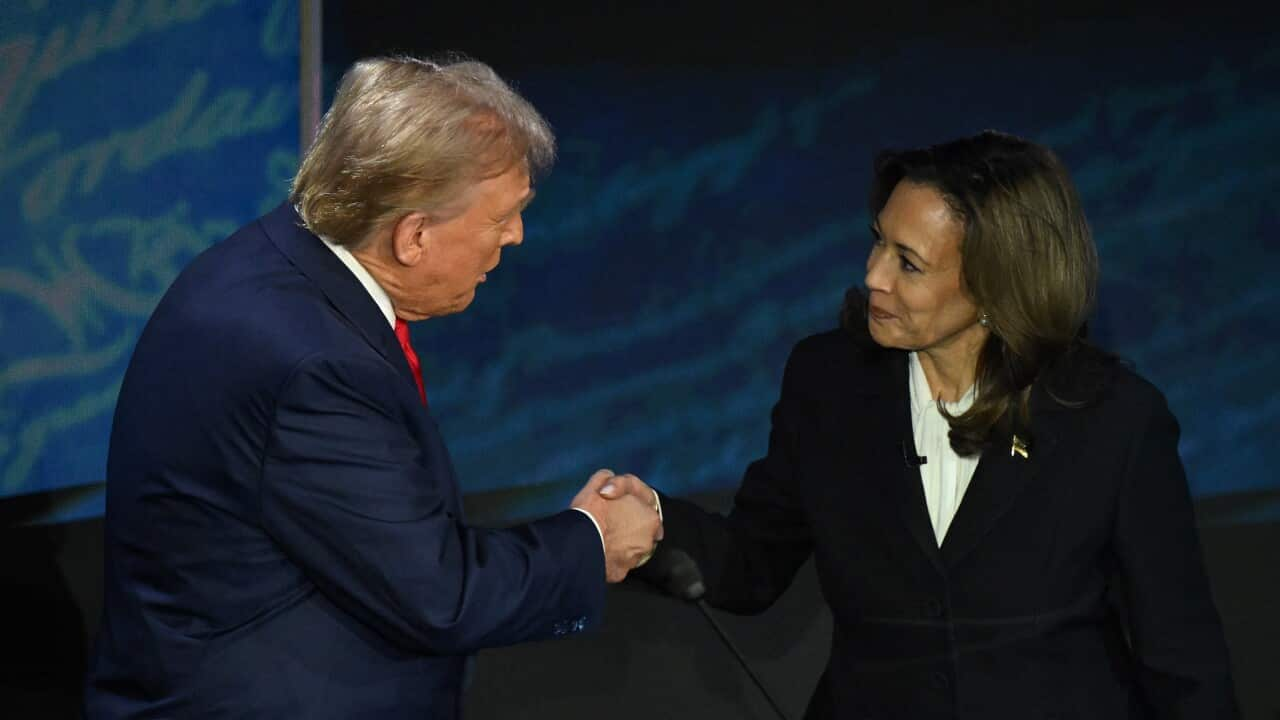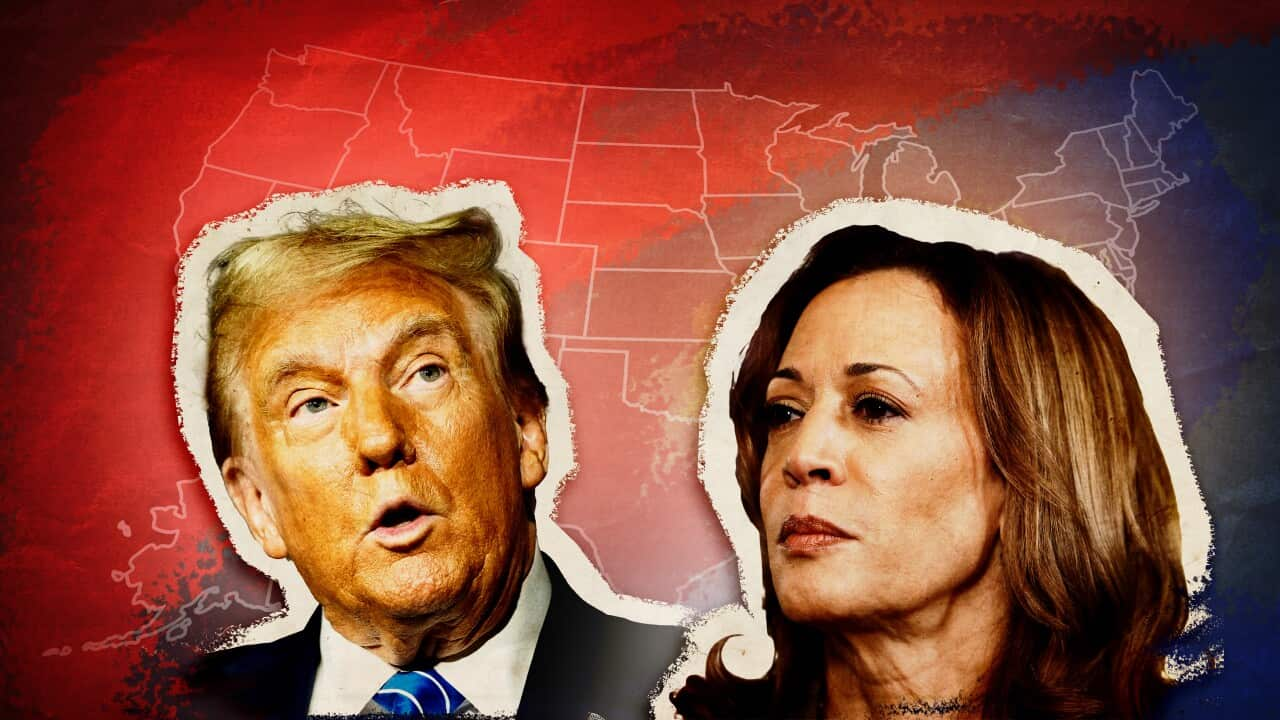Elon Musk's may be raising eyebrows, with questions around its legality and effectiveness, but experts say it's not as clear cut as it seems.
Musk gave US$1 million ($1.5 million) cheques to two attendees of his America PAC event at the weekend in Harrisburg, Pennsylvania, in a move aimed at rallying supporters behind Trump.
The Tesla and SpaceX co-founder said he will give US$1 million each day to registered voters in the swing states of Arizona, Georgia, Michigan, Nevada, North Carolina, Pennsylvania and Wisconsin who sign an online petition in support of the first and second amendments in the United States constitution.
These amendments protect US citizens' right to freedom of speech and to bear arms legally.
It is a federal crime to pay people with the intention of inducing or rewarding them to cast a vote or to get registered, an offence punishable by prison time. The prohibition covers not only monetary expenditures but also anything of monetary value, like liquor or lottery chances, according to a US justice department election crimes manual.
Pennsylvania's Democratic governor, Josh Shapiro, said Musk's plan to give money to registered voters in the state was "deeply concerning" and "something that law enforcement could take a look at".
Is Elon Musk's petition lottery legal?
The legalities are likely to be scrutinised in the coming days but one law professor believes it's not.
Richard L. Hasen, a law professor at the University of California, Los Angeles, said in a blog post: "Though maybe some of the other things Musk was doing were of murky legality, this one is clearly illegal."
Hasen cited a section of the US Code that says anyone who knowingly or wilfully "pays or offers to pay or accepts payment either for registration to vote or for voting shall be fined not more than US$10,000 ($15,024) or imprisoned not more than five years".
Musk's petition reads: "Our goal is to get 1 million registered voters in swing states to sign in support of the constitution, especially freedom of speech and the right to bear arms."
The petition also encourages registered voters in the battleground state of Pennsylvania who sign the petition to refer "a petition signer" and get US$100 ($150).
Though the text of the petition isn't as clear cut as outright stating people will be compensated to specifically register to vote, Hasen believes it's a violation of the US Code.
"For an offer or a payment to violate section 10307(c), it must have been intended to induce or reward the voter for engaging in one or more acts necessary to cast a ballot," he said.
Australian National University marketing lecturer Andrew Hughes said Musk's announcement was a form of "clever marketing".
While it can be seen as being illegal, Musk will make the case otherwise and argue plausible deniability, Hughes said.
"It's absolutely an inducement to get people along to these rallies involved in supporting his petition, but he'll argue that it's not an inducement to vote at all," Hughes told SBS News.
"It's an inducement to encourage people to be engaged with that issue of his, and that's the murky side of US politics."
Why turnout is crucial for this election
Hughes said the crucial factor for the November presidential election, as in previous years, will be voter turnout.
That's why Musk has focused on the registration of voters in this latest campaign, and why the Democrats brought out celebrities such as Lizzo and Usher at the weekend, he said.
"Obviously, he [Musk] can't induce them financially to vote for a certain side," Hughes said.
"But really what he's after is the registration to vote because that's more important in America, for the turnout reasons."
How effective will the petition lottery be?
Getting people to register is one thing, but will it actually translate to votes on election day?
There's no guarantee of that — and people may well change their mind.
"You might just register the vote knowing full well you could win a million bucks now, but absolutely, you have no intention of voting at all," Hughes said.
"It just increases the likelihood you could and that likelihood could translate into at the end of the day, enough votes for you to claim a swing state, which means your person gets declared president."
Timothy J. Lynch, a professor in American politics at the University of Melbourne, said such campaign tactics are part of the theatre of American politics that rules on both sides.
"I think Elon Musk is more in that tradition (of politics as entertainment) than he is cynically with wealth, trying to buy votes," Lynch said.
"I think Musk gets the circus atmosphere of the Trump campaign, and Democrats are appalled by it, and this, in part, explains why they've been so poor at countering Trump."
Lynch said that while Musk "adds a bit of colour" to the US election campaign, ultimately, the result should come down to governance factors.
"I think it's much more an adjudication by the voters of their terms in office than it is how they've run a campaign.
"The campaigns can have a marginal effect, but usually it depends on how they package their governance record."
Additional reporting by Reuters
Want more politics? You can stream poignant political documentaries in the and keep up with daily news bulletins in the SBS On Demand US Election Hub.




